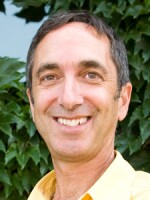One of the few things I remember from my European history class in college was a story about Henri de Navarre. Henri was a protestant King in southern France who converted from Calvinism to Catholicism in order to reunite France and establish the right of religious freedom in that country. When Protestants and Catholics were at one another’s throats in the same kind of sectarian violence that Muslim countries are going through today, King Henri IV found the courage and wisdom to act on behalf of the greater good of all his people.
I think of him now as I ponder the debate over wind power in Vermont. On the one hand we have self-proclaimed environmentalists who argue that industrial wind power will destroy significant amounts of Vermont’s precious natural habitat. On the other hand, we have self-proclaimed environmentalists who insist that wind power is essential if we are to combat global warming – which, if not checked, will destroy all of Vermont’s natural habitat.
What complicates matters is that those against wind power have painted the pro-wind advocates as pawns of corporate powers. The charge is that greedy capitalist companies want to plunder Vermont of its vast beauty - all for just a few more dollars of profit.
To me it sounds too much like the argument we’ve also been hearing against fracking. But I don’t think you can equate wind power with fracking. Fracking not only has a long-lasting negative impact on ground water, it also produces carbon-based fuel that increases climate change. Wind power does exactly the opposite.
While I sympathize with those who want to protect Vermont’s mountaintops and ranges, I’m also reminded of some surprising archive images of Vermont from the mid and late 1800s. Back then the state was clear-cut – literally 70% of the state had no trees! Amazing as that sounds now, sheep farmers and then the logging industry cut down most of the forest in Vermont. Pictures from that time don’t look at all like the state we know and love today. But guess what? The trees grew back. Today over 70% of the state is forest, just the opposite of 150 years ago. So it seems that Vermont’s ecosystem is quite resilient and could withstand some careful experimentation.
As he made his decision to convert, legend has it that King Henri IV famously stated, “Paris is well worth a mass” – meaning that he realized his personal belief had to take a back seat to the greater good of the French people.
And when we now talk about the huge threat of climate change we might as well be discussing the very definition of the ‘greater good’ - from the well-being of the entire ecosystem to the future of our children.





